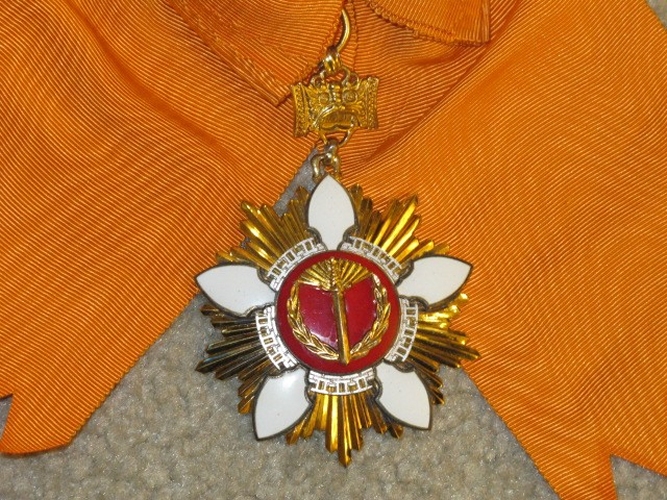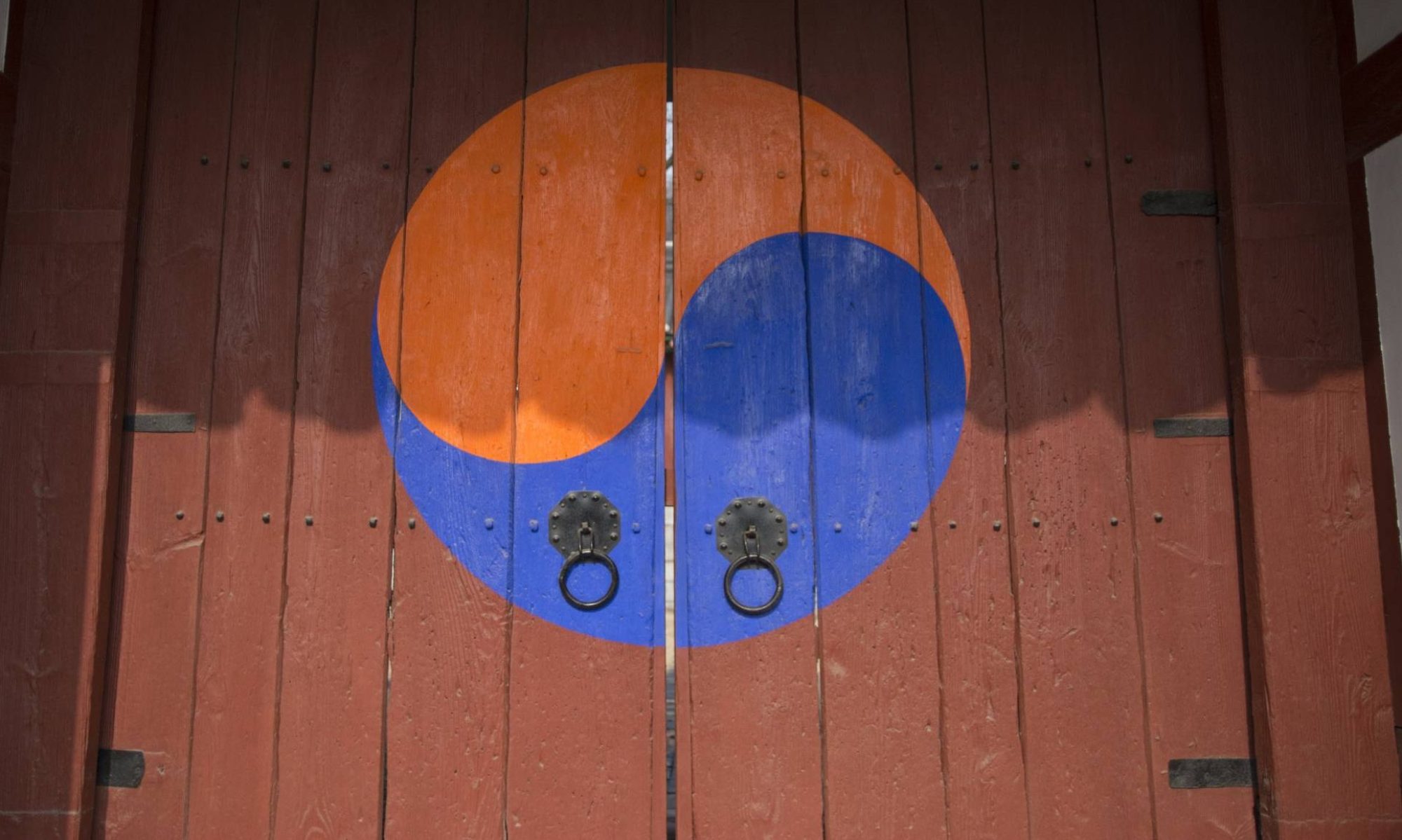The South Korean Medal Roll is now online. And while this is good news, the Medal Roll does have major drawbacks.
Some quick background information
During the Korean War, the armed forces of South Korea were drawn from a male population that was half the size of the Union population during the American Civil War, but suffered more combat deaths than the Union army. More than 2.5 million people were killed during the war. Approximately 80% of the national infrastructure was destroyed, along with 75% of all government buildings and 50% of all residential buildings. Korea was little more than a pile of rubble with widespread poverty, hunger, and disease. The influx of thousands of Koreans, fleeing the communist regime in the north, only exacerbated the problem. It would be more than thirty years before the Korean economy would have some semblance of stability.
Officially the Korean government awarded 209,555 Orders, Medals, and Decorations as a direct result of the Korean War.1 However, the Korean Medal Roll would indicate otherwise.2 According to the roll, during the Korean War (June 25, 1950, to July 27, 1953) the Korean government awarded 94,231 Orders of Military Merit, 1,054 Defense Merit Medals, and 223 Presidential Citations. After July 27, 1953, and through the following year (1954) the Korean government awarded an additional 83,053 Orders of Military Merit, 2 Defense Merit Medals, and 154 Presidential Citations. This totals 178,717 Orders, Merit Medals and Presidential Citations. By the time that many of these awards were authorized for issue, many of the recipients were either KIA, MIA, POW, or discharged from the military. Many of the discharged South Korean veterans had no homes to return to. Thousands of North Koreans were also conscripted into the South Korean military and at the end of the war, they had to make new lives for themselves in the south. Thousands of award recipients never knew about or received their medals, and the South Korean government did not have the resources to find them.
While the number of awards may appear to be significant, it is not a good indicator of the number of medals that were actually manufactured and distributed. Korea was so bankrupt, that in 1956, three years after the end of the war, the Korean Office of Information writes: “The Awards Section also spent 29,526,432 Hwan3 for the manufacture of civilian and military decorations; this economy measure has meant that only 14,900 persons out of 168,510 have actually received medals, 92% of the total decorated having been given only ribbons.” The same source further states; “The Awards Section estimates that an additional 570,201,300 Hwan 4 would have to be appropriated in order to effect delivery of medals to all those who have received awards during the past year, for military services alone….. Foreigners received 1,677 of the awards and servicemen and officers received 7,130”.5 One information source, found on the internet, indicates that there were 11 people (6 generals, 5 police officers) who did not receive their Order of Military Merit, Taeguk Medals for their contributions in the Korean War until sometime between 1955 and 1964.6
I, personally, know a Korean who served with the Korean Marines in Vietnam. He was not aware that he had been awarded an Order of Military Merit, until the government found him and told him that because of the award, he had a pension coming to him.
Within the last ten years, the Korean press has run a series of articles on veterans who never knew about and/or never received their medals. Unclaimed award estimates run between 40,000 and 60,000, but the number could be much higher. Because of all the unclaimed awards, the Korean government put their medal roll online. Koreans can now search for medals owed to them or their family members.

The Medal Roll
The medal roll is entirely in Korean. Attempts to convert it to English, do not work. The roll works well with Korean names, but foreign names are a problem. Over the years, Korea has used several, different methods to transliterate foreign words. Unless you know the date, or approximate date of the award, finding a foreigner is almost impossible. Later awards to foreigners are often in English, but unless you know the exact spelling, they often won’t come up.
The search results are given in 6 columns. These are: the Name of the Recipient 성명, the Organization that the Recipient belonged to 소속, the Name of the Award 훈격, the Award Date 수여일, the Reason for the Award 사유, and the Recommending Organization 추천기관. Don’t be surprised if some columns are blank. The only 3 columns that always contain information are the “Name of the Recipient”, the “Name of the Award” and the “Date” columns.
A major difficulty is that the results are done in pages, with 50 names per page. The largest group of pages that you can pull up is in three month increments. Searching each page is time-consuming. The worst case is the 1st quarter of 1960. That search results in 1,066 pages, all but one at 50 names per page, and totals 53,380 awards. If you decide to do a single day at a time, Jan. 1st 1960 results in 53,267 awards. Most results are not nearly as bad.
Another major difficulty is the name of the award given in the results. The Koreans use the current award name that comes closest to the name of the original award. For example, the Order of Military Merit, 1st class, with Gold Star is shown in the results as the Order of Military Merit, Taeguk, with no mention of the star. The Defense Merit Medal shows up as the Military Merit medal. There is, however, one exception found in the original Order of Service Merit. On Jan. 16, 1967, it became the Order of National Security Merit 보국훈장 (保國勳章). But the original Order of Service Merit had a 6th 육등 and 7th 칠등 class. These awards are listed as the Order of National Security Merit 6th and 7th class. The Order of Diplomatic Service Merit also had a 6th Class, but according to the medal roll, they were never issued, but they may have been rolled into the 5th Class awards.
Another problem is found in the Order of Culture. In 1967, this order ceased to exist and between 1967 and 1973 culture awards were given as the Order of Civil Merit. In 1973, the Order of Culture was restored, but all the awards before 1973 are listed in the medal roll as the Orders of Civil Merit. So while the physical Order of Culture medals exist, many of the recipients are not listed as such.
Currently
Through my contacts in Korea, I tried to get a copy of the database in a more usable form, but failed. It currently looks like my only possibility is to “copy and paste” the entire database into an Excel spreadsheet, one page at a time (26,246 pages). However, Excel has limitations on the size of any one work page, so the database would need to be split up. It will then be necessary to download the work pages into a database program. One of my contacts tried to get a copy of the database with only the names of the non-Korean recipients, but unfortunately, the Korean government only supplied the number of awards given. As of Dec. 31, 2023, there have been 684,153 Orders, 186,564 Merit Medals, 224,173 Presidential Awards and 210,112 Prime Minister Awards issued. This totals 1,305,002 awards issued during the first 75 years of the existence of South Korea.
Footnotes:
- Ministry of Government Information, Decorations Overview, 상 훈 사 람 (賞 勳 使 覽) 12.1984, p.255
- The total for all awards did not reach 209,555 until 1960.
- In 1955 it equaled U.S. $59,052.86, which in 2024 U.S. dollars is equal to $663,163.61
- In 1955 it equaled U.S. $1,140,402.60, which in 2024 U.S. dollars is equal to $12,806,721.20
- Korean Report, Volume IV, July 1956, p.3
- 6·25전쟁 참전 역사의 발굴, 그리고 기억의 방식 Excavation of the history of participation in the Korean War and ways of remembering
